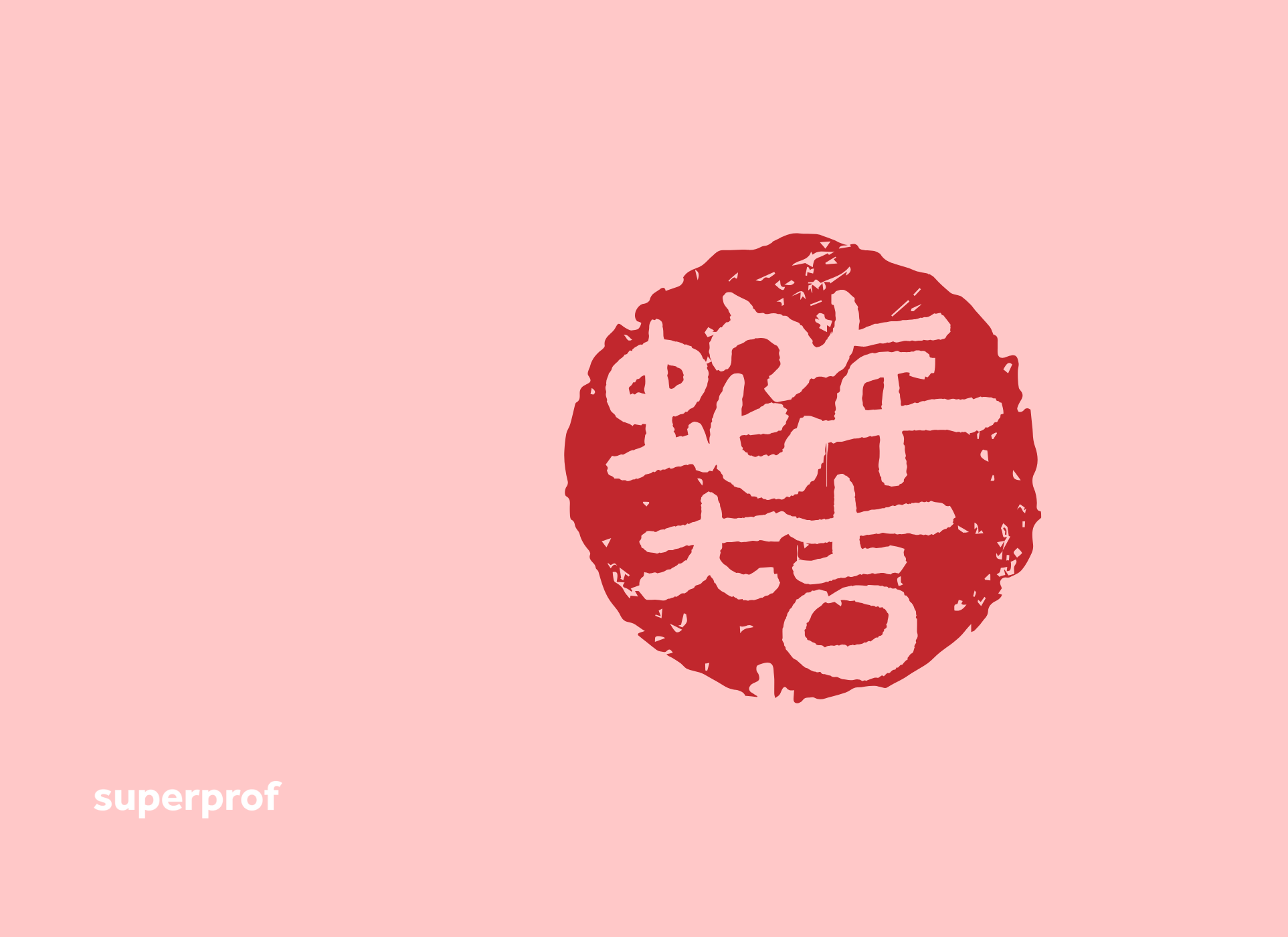蛇年大吉 - shé nián dà jí (lit. Snake Year big luck)
Greeting for the Year of the Snake
English speakers are lucky to have one New Year greeting, suitable for all and sundry. That's not the case with Chinese New Year wishes in Mandarin. How you greet depends on who you greet, and some greetings could be disrespectful. Note this chart, which shows New Year wishes in Chinese, and who to say them to.
| 🙏Greeting | 💬What it means | 👨👨👦👦Who it's for |
|---|---|---|
| 新年快乐 xīn nián kuài lè | Happy New Year | Friends Neighbors Storeowners |
| 蛇年快乐 shé nián kuài lè | Happy Snake Year | Casual friends Storeowners Neighbors Children |
| 春节快乐 chūn jié kuài lè | Happy Spring Festival | Everyone |
| 恭喜发财 gōng xǐ fā cái | Happiness and prosperity | Everyone |
| 大吉大利 dà jí dà lì | Big luck, Big profit | Business people Family |
| 年年有余 nián nián yǒu yú | Year after year, abundance and prosperity | Business people Family Newlyweds |
| 财源滚滚 cái yuán gǔn gǔn | Let wealth pour in! | Family Work associates Business people |
| 五福临门 wǔ fú lín mén | May the Five Blessings come to you | Elderly relatives Bosses Officials |
| 恭贺新禧 gōng hè xīn xǐ | Good luck in the upcoming year | Students Neighbors Family |
| 万事如意 wàn shì rú yì | May all go well. | Children Students Casual acquaintances |
| 飞黄腾达 fēi huáng téng dá | Best wishes for fast career advancement | Young professionals Students about to graduate |
| 事业发达 shì yè fā dá | May your career take off. | Young professionals Students about to graduate. |
| 出入平安 chū rù píng ān | Coming or going, safety and peace. | Travelers Students Neighbors |

蛇年快乐- shé nián kuài lè
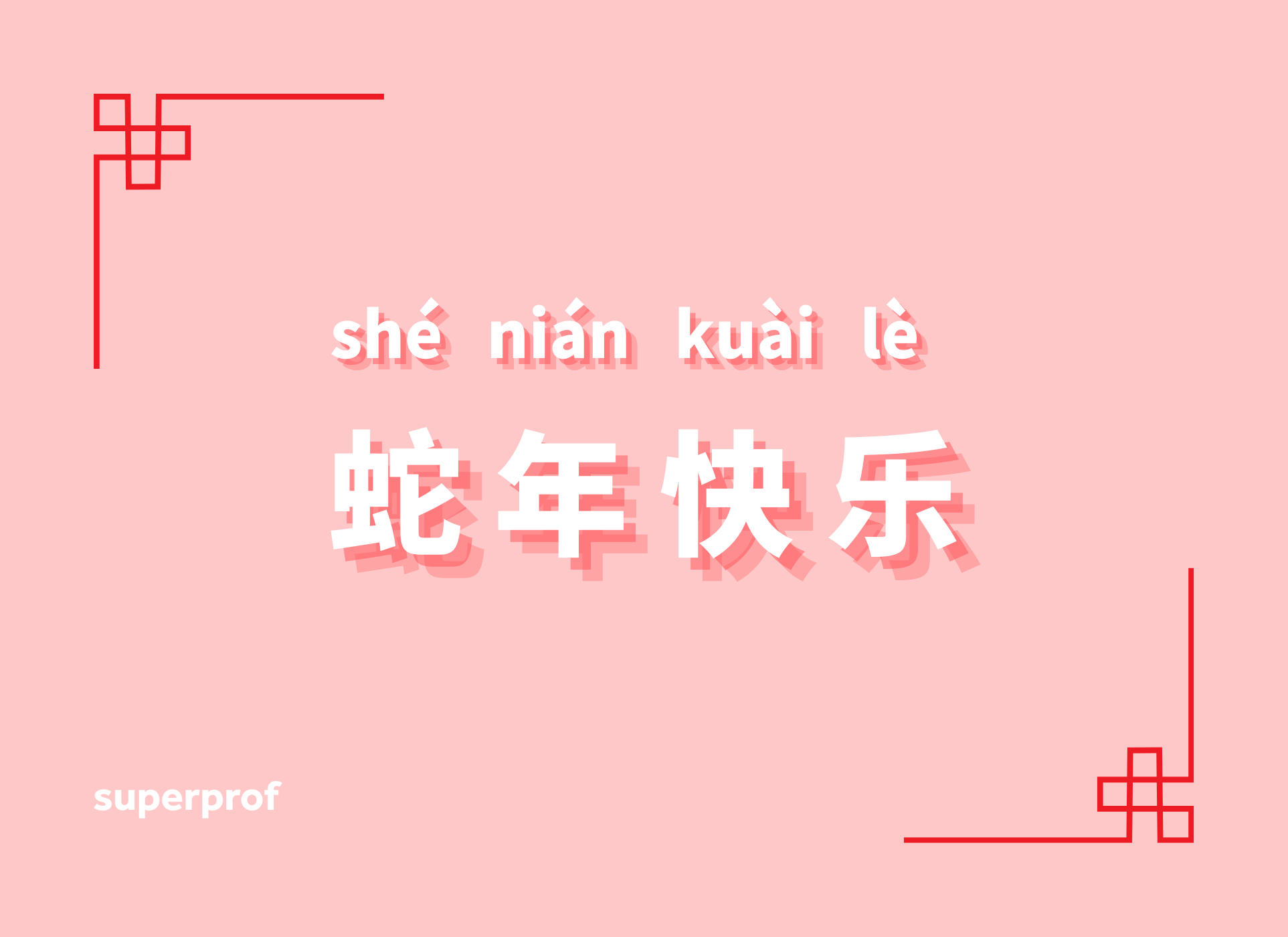
2025 is the Year of the Snake, according to the Chinese zodiac. So, it's appropriate to wish people a Happy Snake Year.
This is a handy greeting to remember, because you only need to insert the proper zodiac animal to refresh the greeting for each year.
Beware that this greeting is for the new Lunar Year, not January 1.
As noted in the table above, this Chinese New Year message is best for children, casual friends, and neighbors. You can make it more colloquial by saying 蛇年好 (shé nián hǎo) - have a good Snake Year. Sound even more like a native by adding the 啊 (ah) particle at the end!
新年快乐 - xīn nián kuài lè
In China, it's common to wish people "Happy (zodiac animal) New Year!" ahead of - or, just after Lunar New Year. But, you don't have to. You can stick with the standard 'New Year Happiness'. It applies to both New Year observations.
Like wishing people a good Snake Year, you can wish friends and neighbors a good New Year (新年好 - xīn nián hǎo). Don't forget the 啊 at the end! Roughly translated, it means "Have a good New Year, okay?"
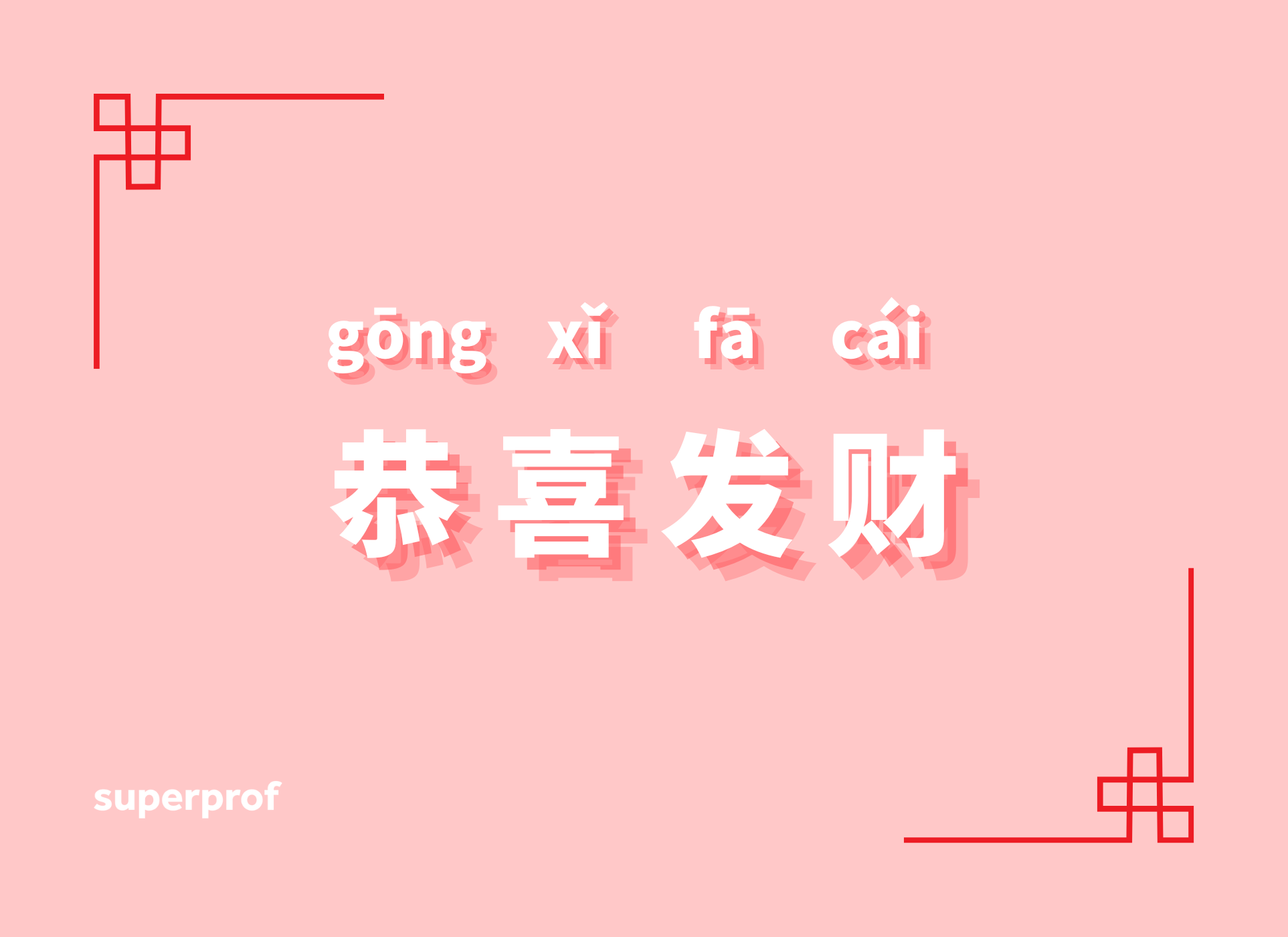
恭喜发财- gōng xǐ fā cái
I can never speak this version of Happy New Year in Chinese without hearing Andy Lau sing it. He is one of Hong Kong cinema's biggest stars, and he's currently the Vice-Chairman of China's Film Association.
In China as elsewhere in the world, Lunar New Year celebrations feature an hours-long, televised gala. Though many younger Chinese consider the show trite, Andy Lau's appearance, to sing 恭喜发财, is the spectacle's highpoint.
Putting nĭ (你 - you) in the middle - 恭喜你发财 makes the greeting more targeted.
This greeting, which means "Happiness and Prosperity", is suitable for everyone you greet. Adding 你 changes it to "Happiness and Prosperity to you". That's the way Andy sings it!
春节快乐- chūn jiékuài lè
Here, again, we have a song, though it's perhaps a bit outdated. Also, it's more for children, something you might hear in kindergarten classes. Sing 春节到了,春节到了 (chūn jié dào le) to 'Are you Sleeping?'
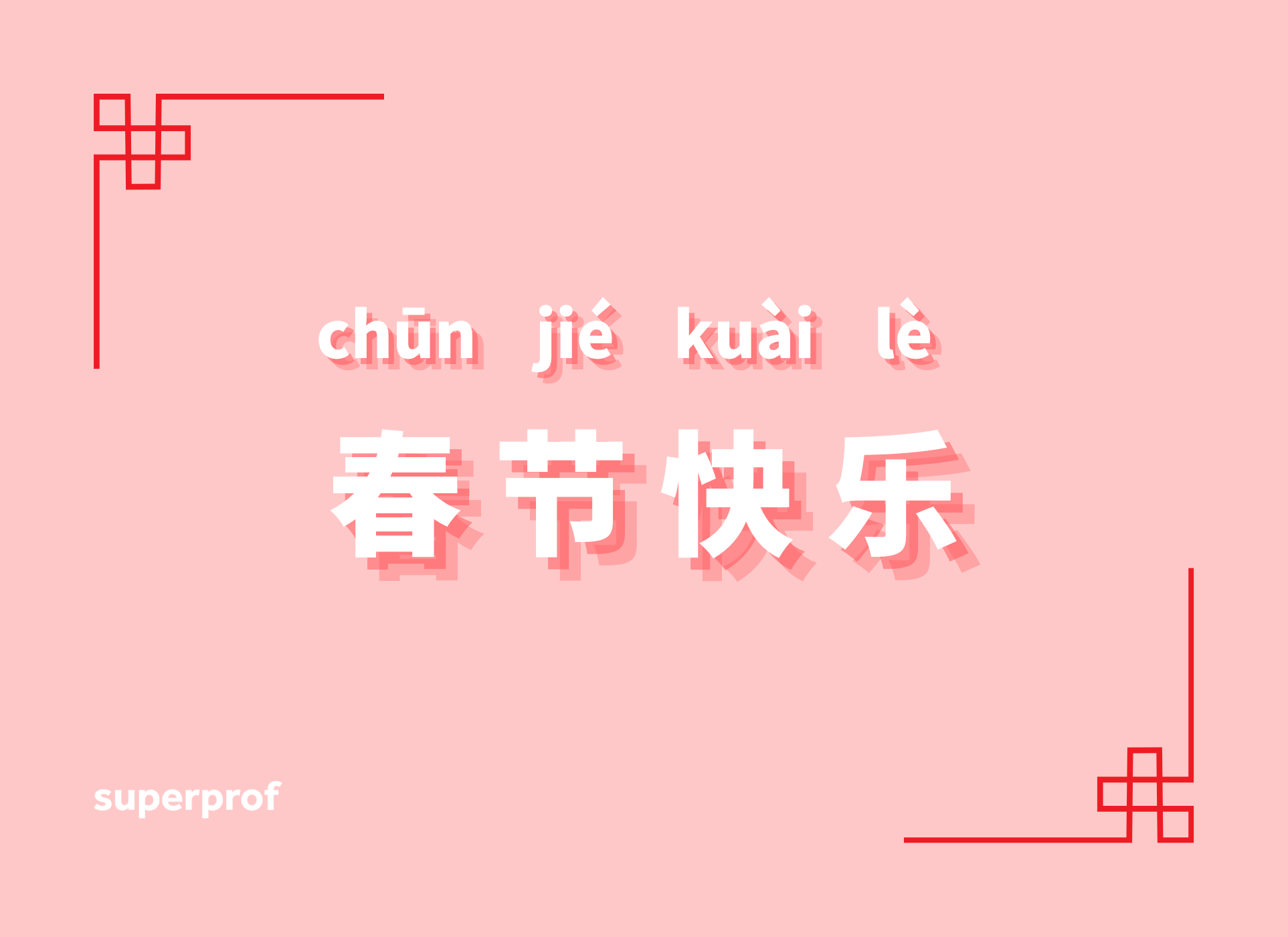
Spring Festival (春节 - chūn jié) lasts 15 days, from Lunar New Year till Lantern Festival. You can wish anyone you meet Spring Festival Happiness (春节快乐) during that time.
You can wish your friends 春节好 - chūn jié hǎo, this greeting's more casual version. Do not greet your elders, teachers or storeowners that way, though.
It would be very rude!
We can go further, to say that Spring Festival traditions and superstitions abound. Learn what you can say and do, and words you must never speak during these celebrations.
大吉大利- dà jí dà lì
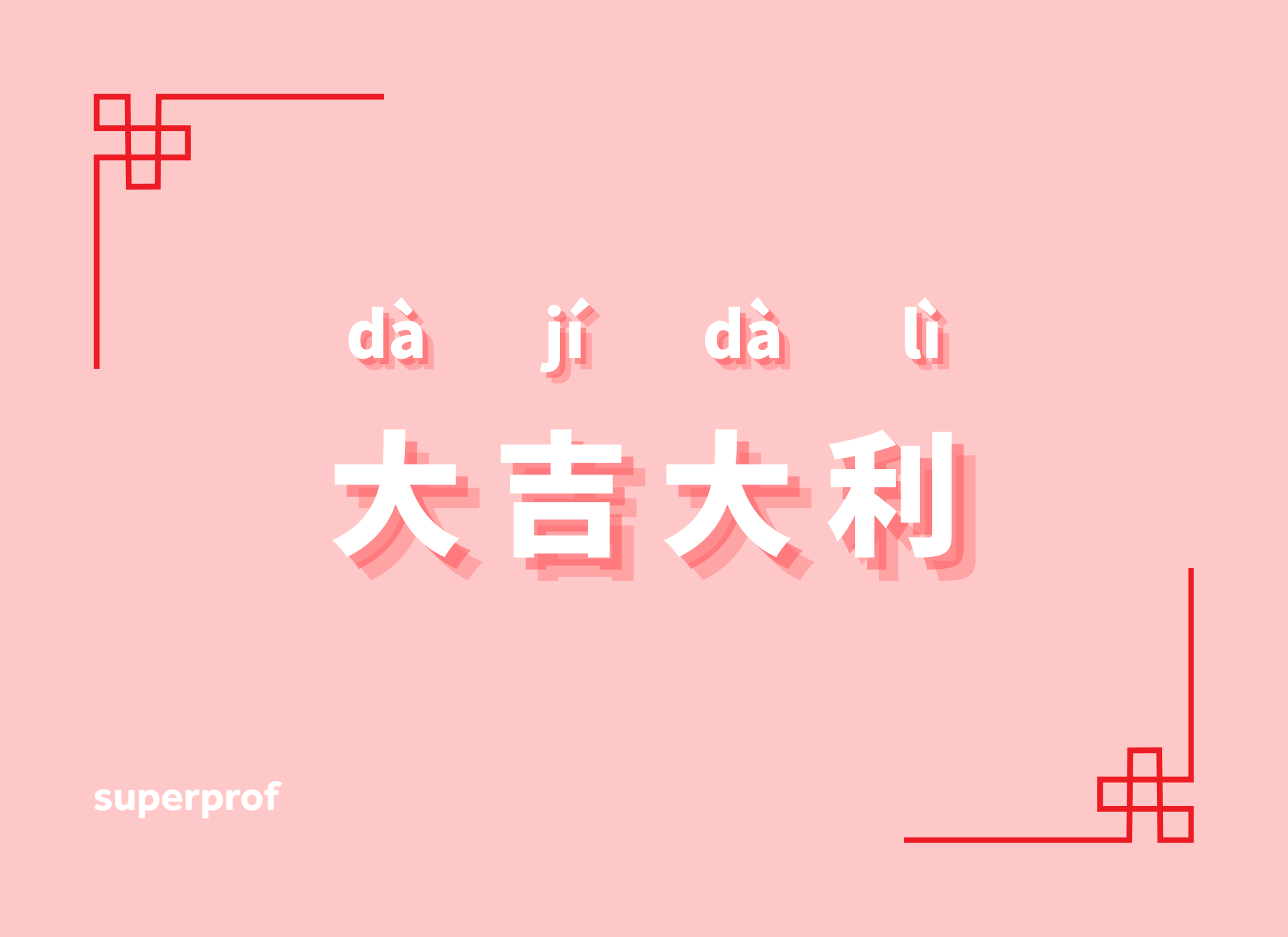
This form of Happy New Year in Mandarin is more of a rallying cry than a well-wishing. It means "Big luck and big profit!". Those are sentiments typically aimed at anyone trying to succeed in business.
In China, it's common to offer toasts, blessings and well-wishes throughout the meal.
Imagine a team dinner in a fine restaurant, ahead of the Spring Festival break. The employees might toast their boss with this greeting, and then clink their glasses together before drinking.
Just remember to keep the rim of your glass below your boss'! A glass at the same height (or higher) means you see yourself on the same level, or better. The same holds for family toasts; always strive to keep your glass' rim lower than your elders'.
年年有余- nián nián yǒu yú
Who wouldn't want "Abundance and prosperity, year after year"? That's exactly what this phrase means. You may direct it to practically anyone, except children, of course.
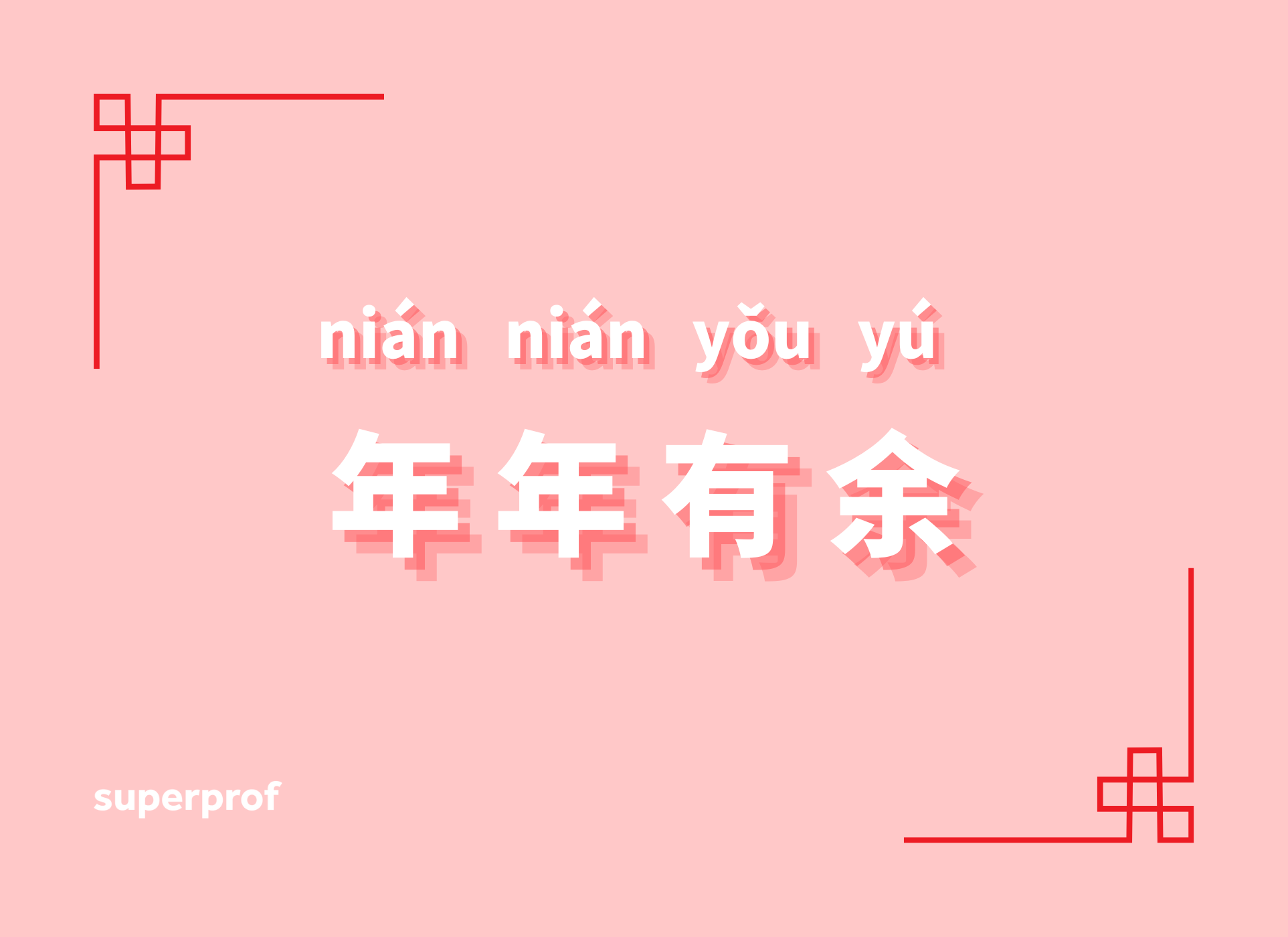
It's especially suitable for newlyweds celebrating their first Lunar New Year together. Or, if you just started a new job, your coworkers and new boss would thrill to hear this greeting from you.
Do you have an uncle who just launched themselves into a new business? This is the Chinese New Year greeting for them!

财源滚滚- cái yuán gǔn gǔn
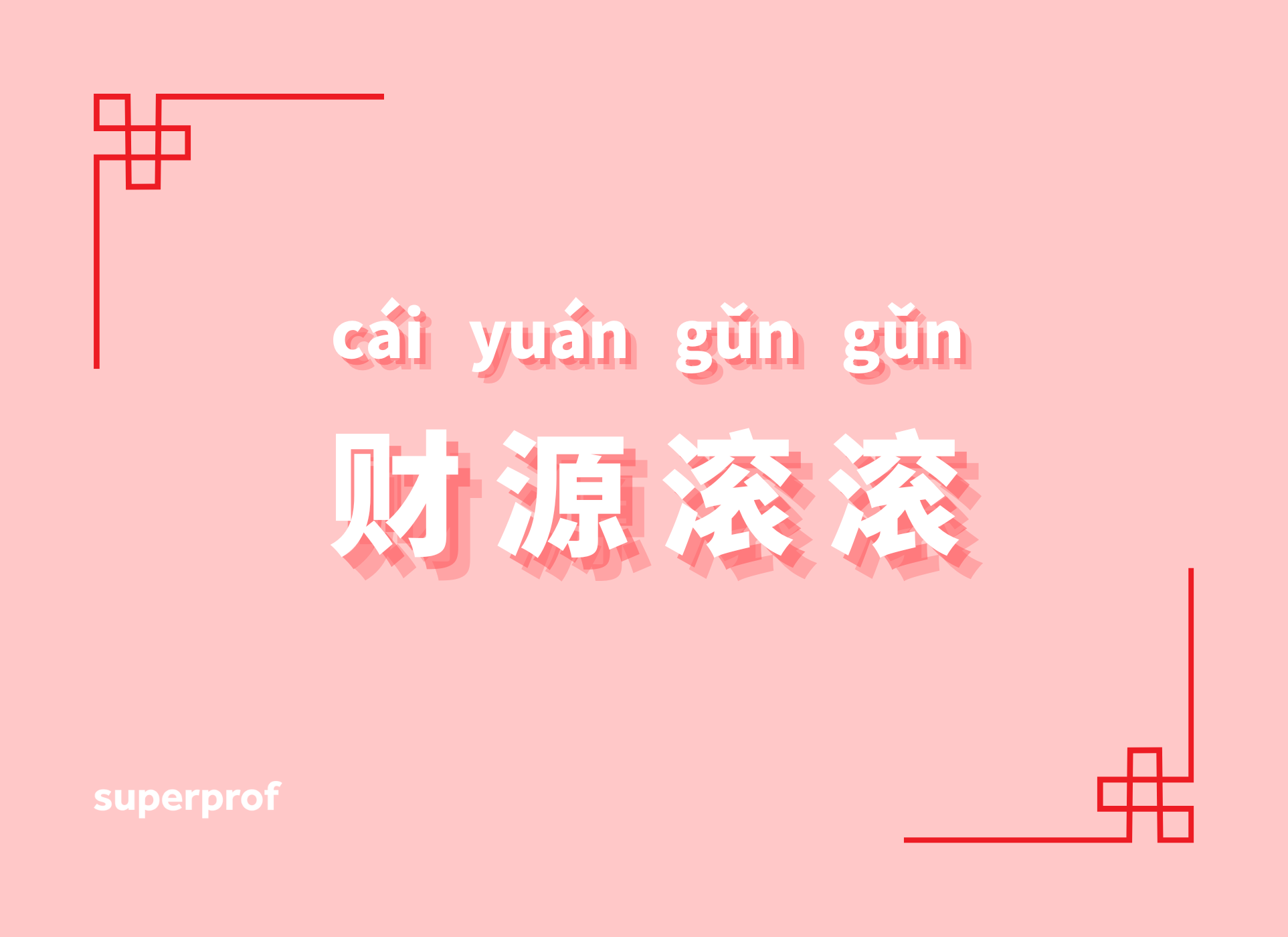
Following up on the above sentiment, you can express your wishes for the "blessings to continue pouring in".
In Mandarin, doubling particles adds emphasis and conveys sincerity.
This phrase, literally translated, says "Wealth (financial resources) roll-roll.
By now, you might have noticed that many Chinese New Year sayings invoke wealth, prosperity, and luck. These are essential Chinese blessings for friends, coworkers, and loved ones alike.
Focusing on specific blessings is one of the aspects of Chinese New Year that make this celebration so personal.
五福临门- wǔ fú lín mén
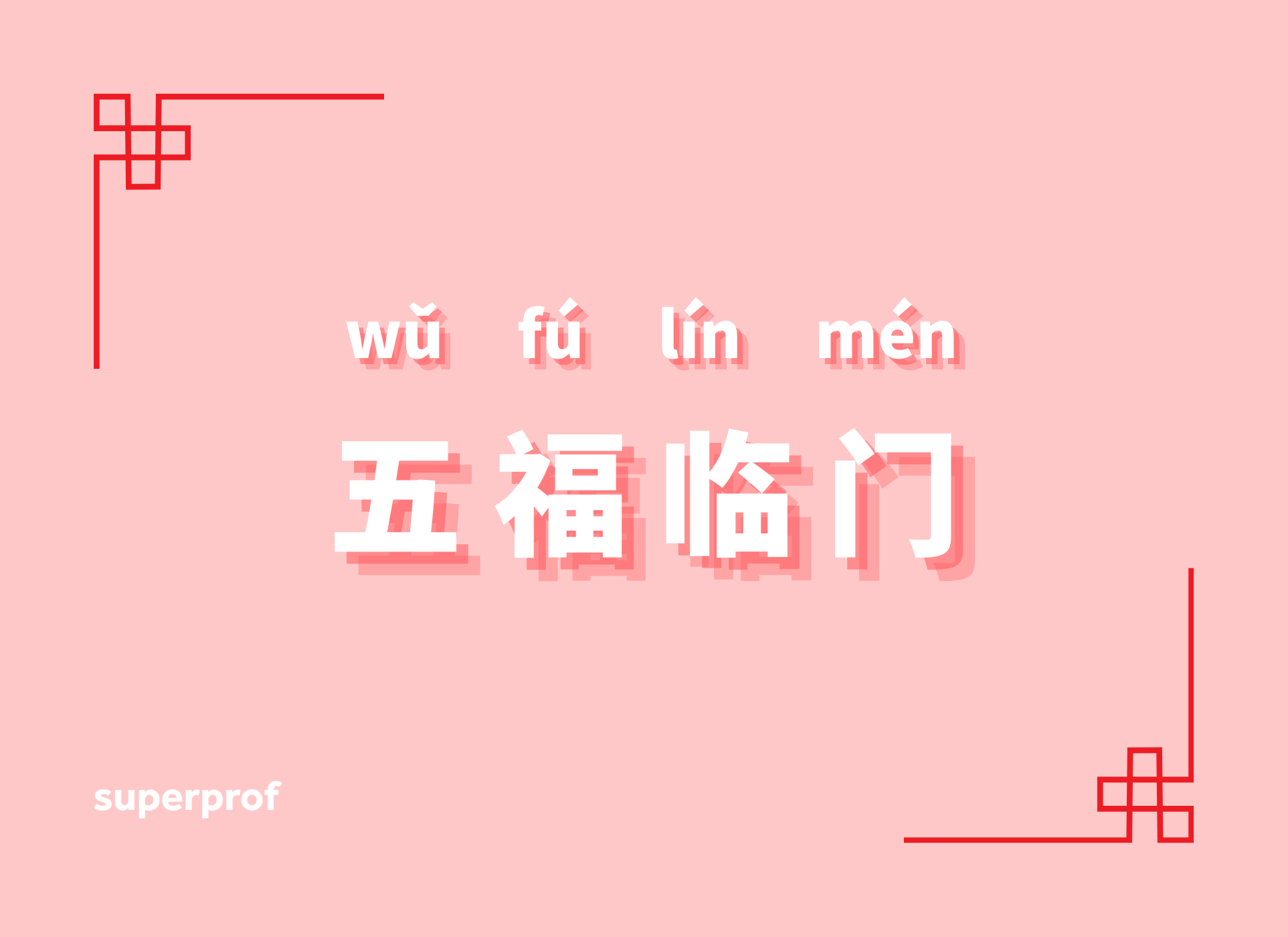
For Lunar New Year greetings with a traditional vibe, deliver "Five blessings at your gate". Or, as it is more commonly translated: "May the Five Blessings come to you".
It's the perfect Chinese New Year message for any elderly person, or a high-ranking official.
Wealth, Health, Virtue, Longevity, Natural Death
In Western cultures, it seems morbid to wish anyone any type of death, particularly during a celebration. However, traditional Chinese culture accepts death as a fact of life. Therefore, wishing someone a peaceful, natural death respects the culture, and the person.
恭贺新禧- gōng hè xīn xǐ
When someone is soon to face a challenging ordeal, wishing them "Good luck in the upcoming year" is the best Chinese New Year message.
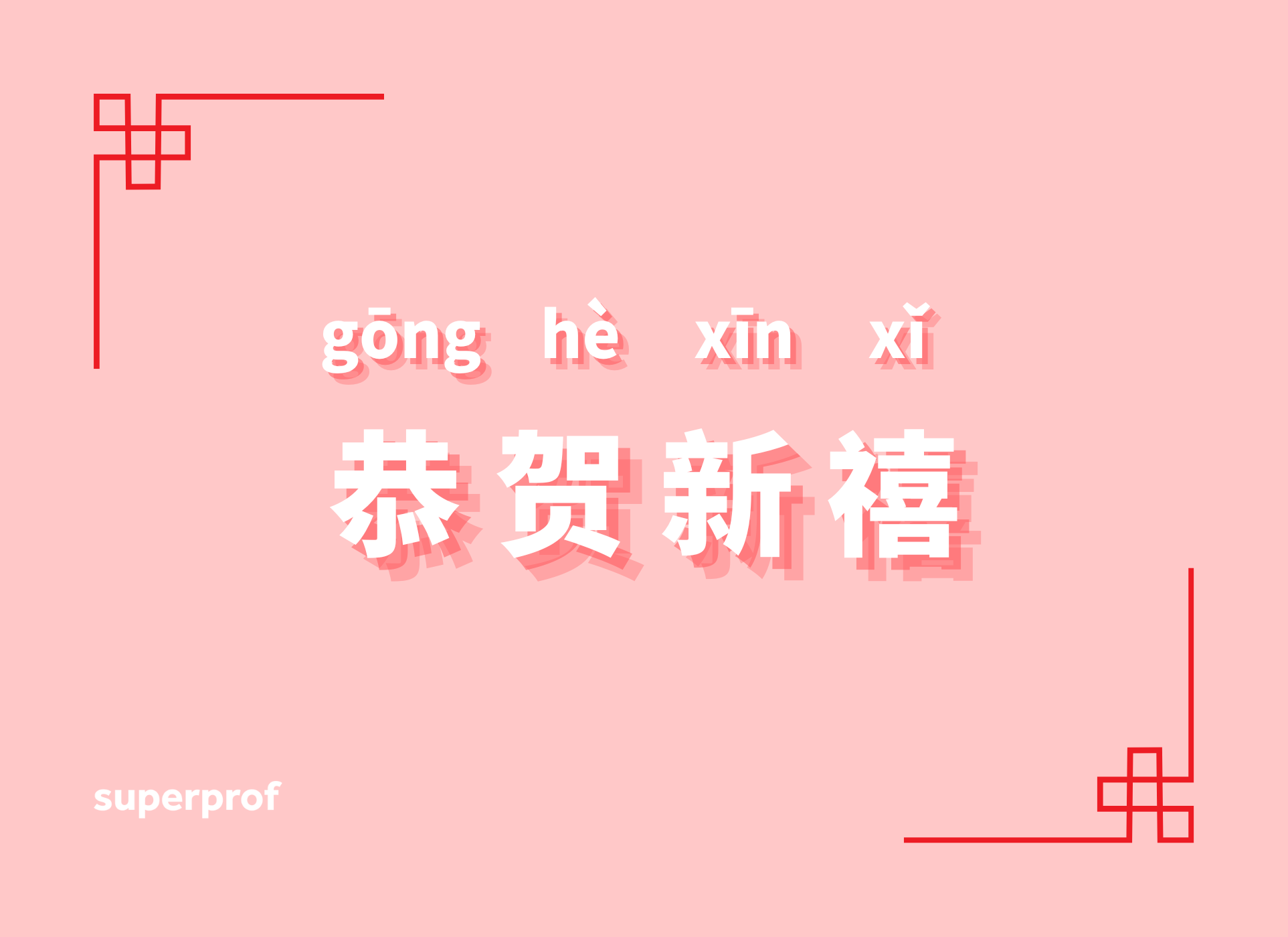
Students preparing for their university entrance exam (高考 - gāo kāo) need this blessing.
It's also great for someone starting a business or a new job. Remember that it's a bit generic; speaking it on its own could land flat. You should personalize this greeting with "On the occasion of your (ordeal) good luck." (为你的 ... 恭贺新禧)
万事如意- wàn shì rú yì
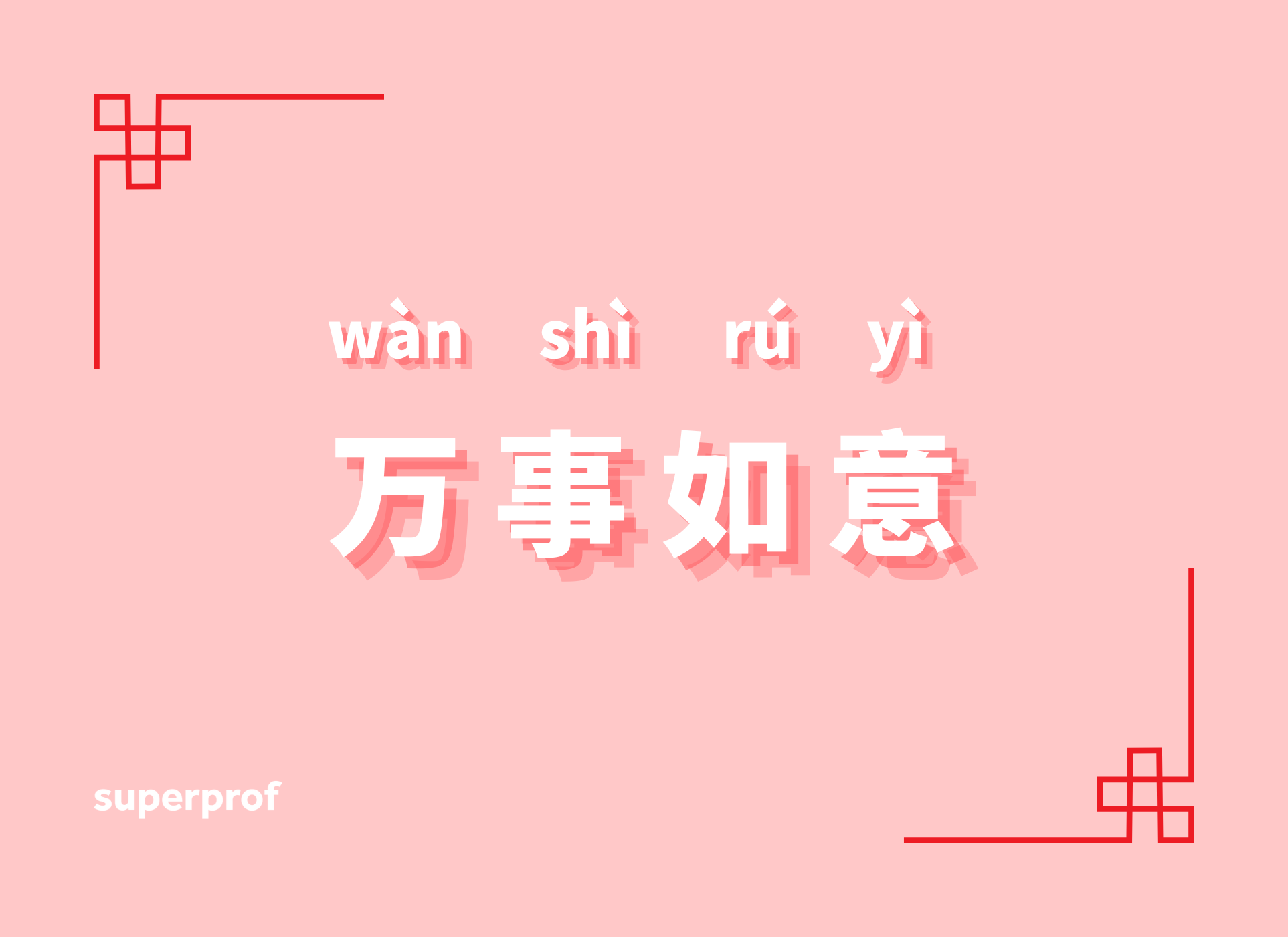
This is how to wish someone a happy Chinese New Year if you're not particularly invested in them. Or, if they admit to a difficulty ahead. Saying "May all go well" is rather non-committal.
It's a sort of general greeting suitable for people you don't know really well.
Chinese singles wishing to remain unattached will hire a boyfriend or girlfriend for the holiday.
This is one of the most interesting Chinese New Year phenomena I discovered whist living there. Traditional Chinese culture insists on marriage and family. Today's young adults aren't always so keen on that idea.
So, instead of the whole family harping at them over their woeful single status throughout the visit, they hire a partner. This temporary fiancé(e) will subject themselves to all the prospective in-law scrutiny a genuine lover would. With that in mind, wishing them "May all go well" is reasonable.
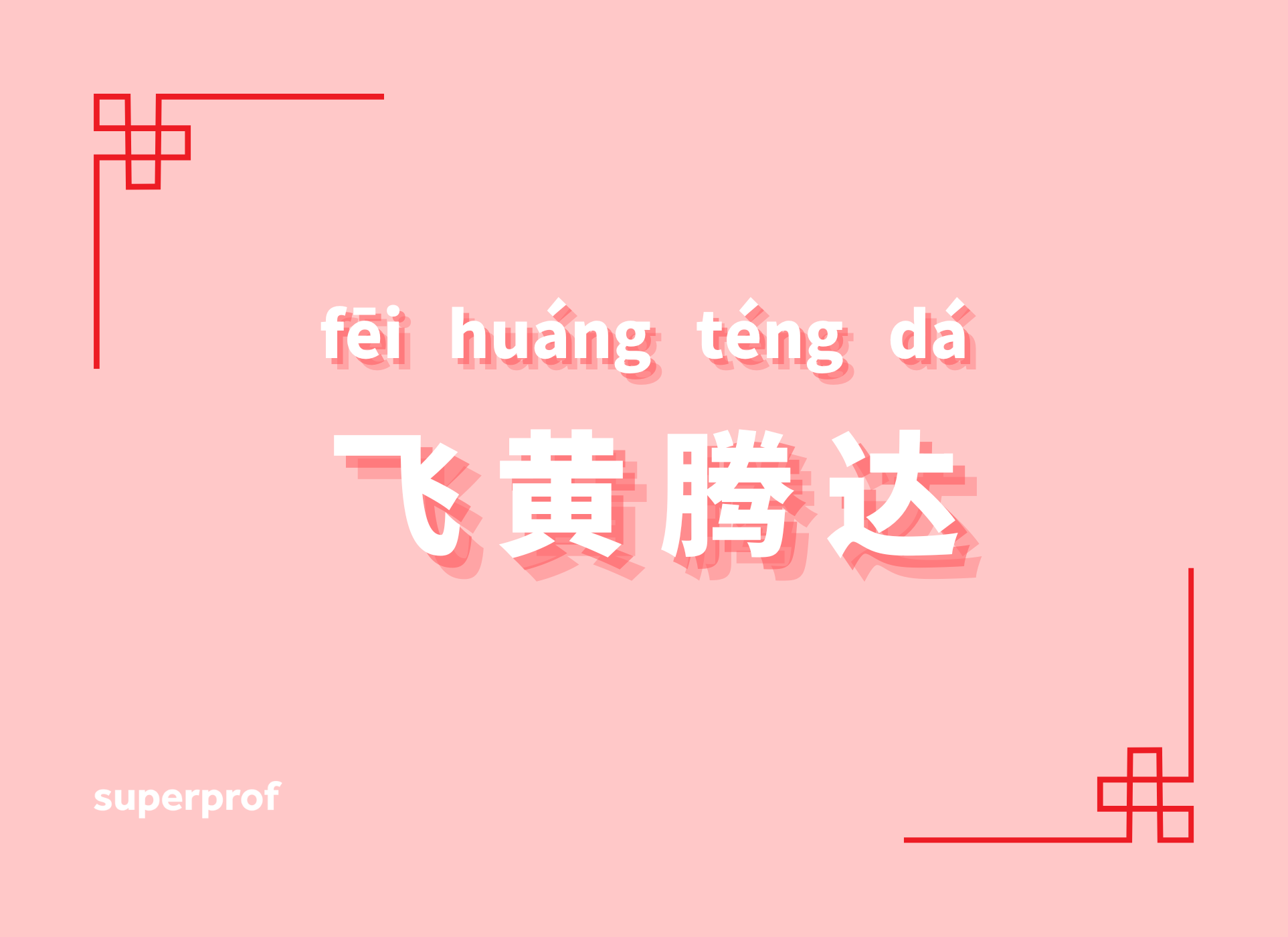
飞黄腾达- fēi huáng téng dá
If you were to offer Chinese New Year greetings in English, "Best wishes for fast career advancement" probably wouldn't cross your mind. However, it's a very common greeting, aimed at young professionals, and students about to start their careers.
Other Lunar New Year greetings along these lines include:
- 平步青云 (píng bù qīng yún) - May your rise be meteoric
- 升官发财 (shēng guān fā cái) - Promotions and prosperity.
- 蒸蒸日上 (zhēng zhēng rì shàng) - May your business grow daily
- 事业有成 (shì yè yǒu chéng) - Great success in your career
- 马到成功 (mǎ dào chéng gōng) - May you have great success
Remember that, in Chinese culture, wealth, prosperity, and success are the best things you can wish on others. It's not a matter of greed, but a sincere desire for everyone to do well.
事业发达- shì yè fā dá
This blessing is in line with the ones above. It means "May your career take off". This one, too, is for young professionals, people just starting their careers, and students about to enter the workforce.
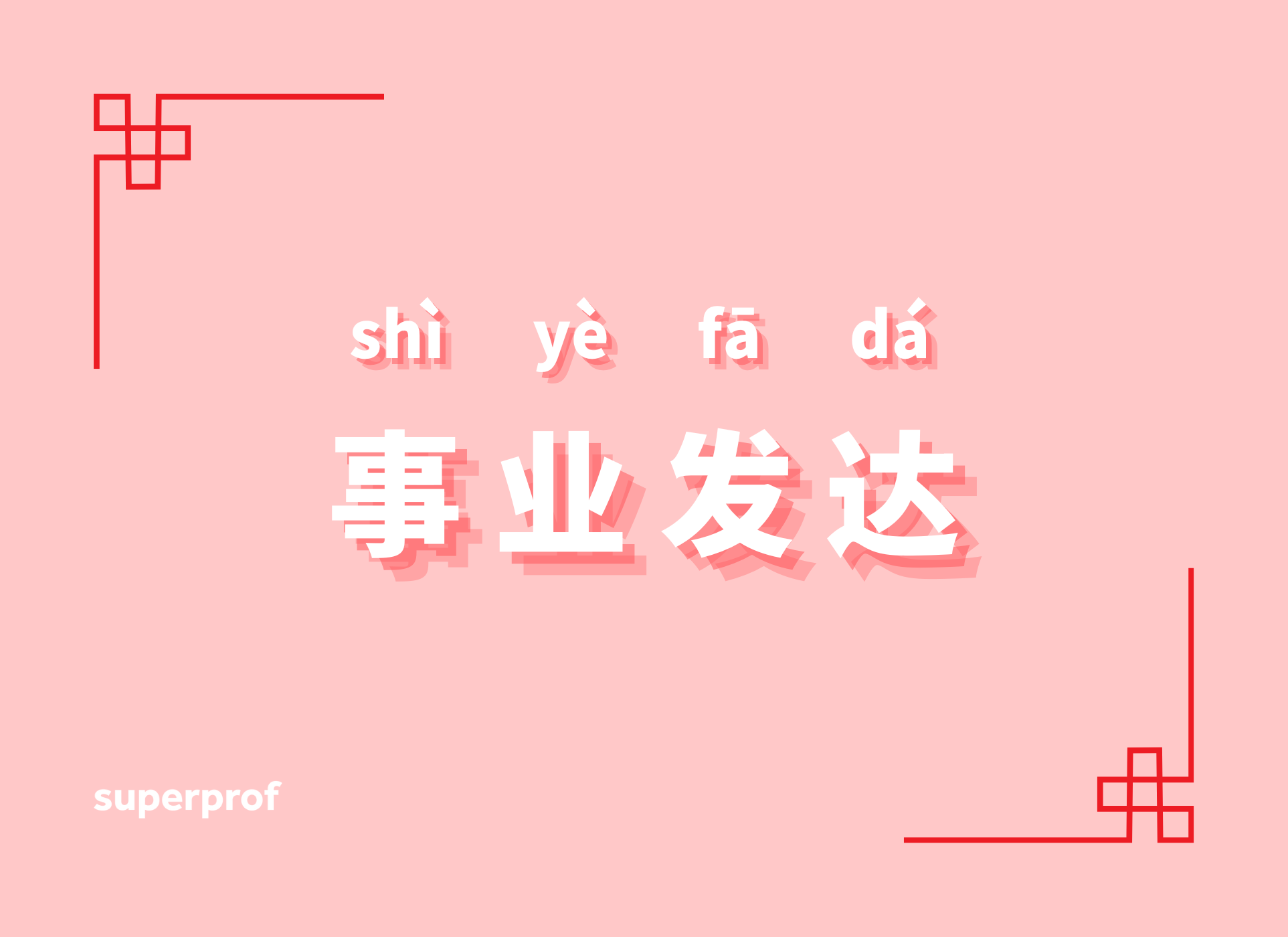
Diligence is a hallmark of traditional Chinese culture. Working hard and striving for success underpins all the hopes parents send their children into the world with. So, wishing these young ones success also feeds the family's aspirations.
出入平安- chū rù píng ān
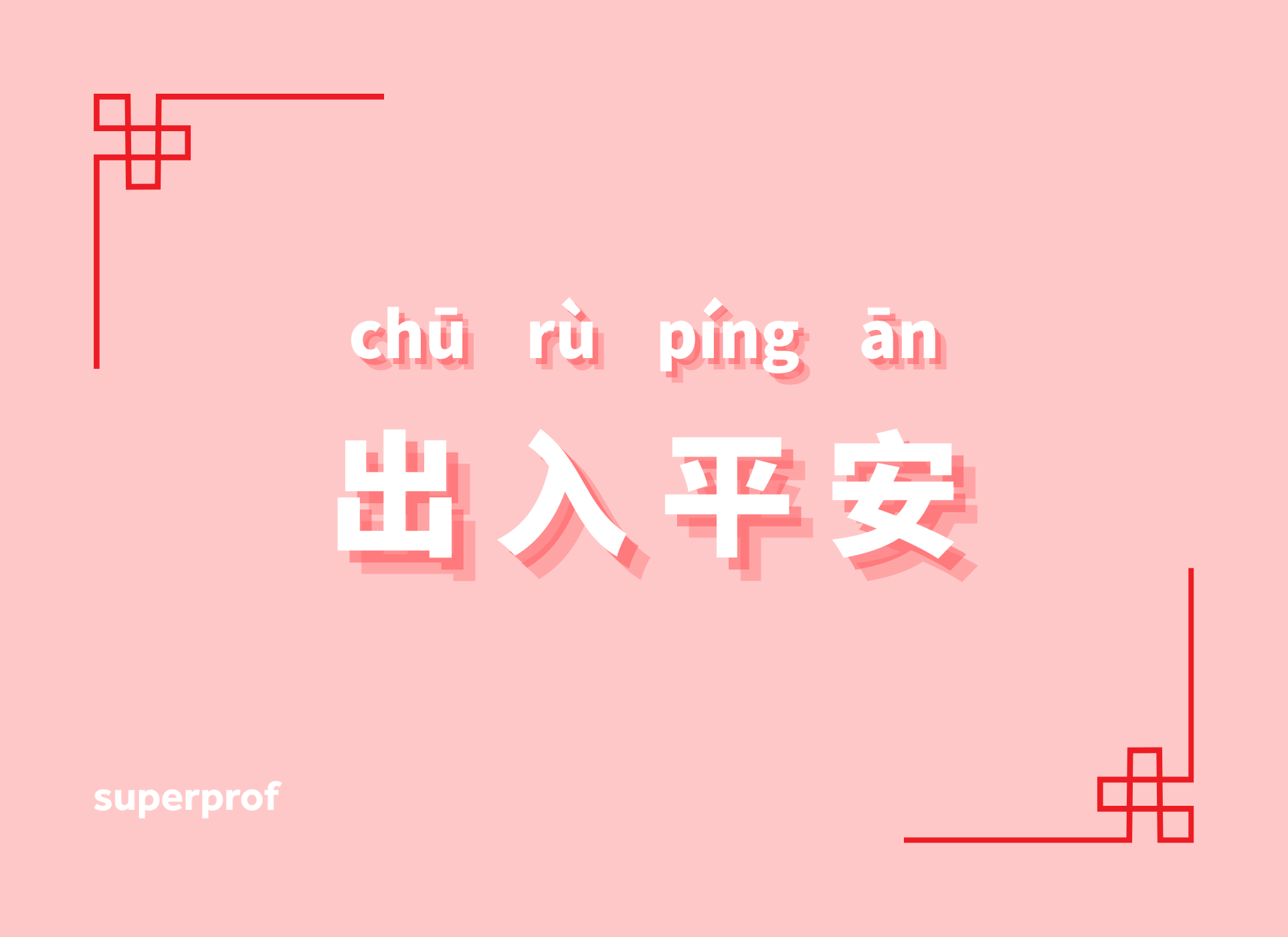
"Peace and safety, coming and going": this is a Chinese New Year message the whole world can get behind!
It's particularly apt as a Spring Festival greeting, because of all the traveling Chinese people do around that time.
China's Spring Festival celebration marks the world's largest annual human migration.
That's when millions of people take to the roads, rails and skies, to come back to their homesteads and villages. After the festivities, migrant workers, university students, and entrepreneurs will return to the cities. For these travelers, "Peace and safety, coming and going" is the perfect salutation.
There you have it. Twelve specific ways to extend Chinese New Year wishes, targeted at different groups. Now, discover 12 must-sample Chinese New Year foods, and the stories behind them.
Summarize with AI:

